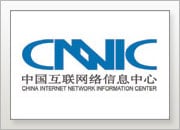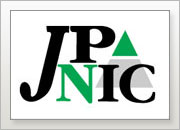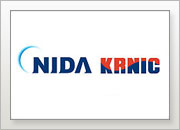

APNIC 26 Member Meeting Minutes
Chair:
Akinori Maemura, Chair, Executive Council of APNIC.
Agenda:
- Welcome
- APNIC Secretariat report
- APNIC Services Area report
- APNIC Communications Area report
- APNIC Business Area report
- NC election procedure and speeches from candidates
- APNIC Financial report
- Executive Council report
- DNSSEC support
- Signing of Memorandums of Understanding (MoUs)
- RIR reports
- NRO NC report
- NRO report
- SIG report
- NIR SIG report
- APOPS report
- Network report
- ICANN report
- Open discussion (open mic)
- APNIC 27 host presentation
- NRO election result
- Prize draw, thanks, and closing
1. Welcome
- Presenter: Akinori Maemura
- Presentation: Video
Akinori Maemura, Chair of APNIC EC welcomed the members to the AMM. After a review of the bylaws, it was decided that Maemura-San would be the Chair for today's AMM and not Paul Wilson.
2. APNIC Secretariat report
- Presenter: Paul Wilson, Director General of APNIC
- Presentation: Slides, Original slides, Video
Paul Wilson started by thanking the silver sponsors, CNNIC, KRNIC, TWNIC and JPNIC. He reminded the delegates of the NRO NC election and that every individual attending could vote in addition to any votes an individual's membership may have cast. Paul invited suggestions for additions to the agenda. There were none.
The APNIC structure comprises Services, Communications and Technical and the Chief Scientist. The Services area formerly comprised the Technical and Services area but has now been combined under Services.
In regards to the fee structure reform, the initial Australian dollar reform has been implemented. The second phase of the process is now underway. This change has resulted in APNIC finances being more stable and predictable.
Resource Certification will be released very soon. There is both formal and informal coordination of certification activity amongst the RIRs and the APNIC membership community. It also involves formal coordination with the NRO's Engineering Coordinator's Group and work under the IETF RPSEC group.
Internet Governance is becoming increasingly prominent and the next Internet Governance Forum (IGF) will be held in Hyderabad in 2008. APNIC have offered resources to coordinate online participation. The ITU are also expressing an interest in Internet Governance, in particular resource management, and will be holding an IPv6 workshop in parallel with the meeting in Geneva. Resource management was also discussed at the OECD ministerial meeting of June 2008. Geoff Huston spoke at this event.
APNIC are also involved with ISIF, a competitive grants program.
APNIC will also be continuing with another member survey, which will be completed for APNIC 27. In addition to the regular member survey, this survey will include questions on IP addressing, in particular the planning for IPv4 consumption and the transition to IPv6.
3. APNIC Services Area report
- Presenter: Sanjaya, Services Area Manager
- Presentation: Slides, Original slides, Video
Resource Services:
IPv4 and ASN delegations as at July 31, 2008 already match what was delegated for 2007. There have been large blocks of IPv4 requests because of the end-consumer broadband penetration, particularly in China and India. IPv6 delegations were lower that the previous two years due to the implementations of the HD ratio policy and the default assignment policy. APNIC has improved its internal systems by implementing an escalation request for a /15 and larger.
Membership Services:
Membership grew to 1,778 and is expected to continue growing for 2008. (Note this includes NIR members). APNIC will be launching public availability of MyAPNIC 2 Beta in September 2008. MyAPNIC 2 incorporates user and password authentication and for high privilege operations, the X.509 Resource Certificate. Users will be able to activate or deactivate a service, manage their resource collection, and generate route origin authorization (ROA).
Project and System services:
The Projects team have updated the ticketing system, made improvements to the events management system and will be providing more IPv6 enhancements in the resource management system.
Software engineering:
This team have been busy improving the following: MyAPNIC, the internal resource management system, and the events management system. Resource Certification will also include an "end-customer certification" feature. This allows our members to create further downstream certificates for their members.
Network and Operations:
They are kept busy maintaining the 50+ servers we have all over the world. They have been busy installing devices needed to operate Resource Certification. DNS services have been made available to the NIRs and KRNIC has successfully migrated to this system.
Research and Development (R&D):
During the first half of 2008, we participated in the "Day in the life of the Internet" (DITL). We participated in sending about 50 Tb of data in to OARC and CAIDA from Hong Kong, Japan, Australia DNS logs. In the second half of 2008 R&D will improve TTM deployment, continue their input into reporting and strategy planning, and continue their work on Resource Certification.
Security:
APNIC have installed a CCTV system to improve our physical security.
4. APNIC Communications Area report
- Presenter: German Valdez, Communications Area Manager
- Presentation: Slides, Original slides, Video
A new area, the IPv6 Program (led by Miwa Fujii) was implemented. The IPv6 Program will involve research into national, regulatory, and policy frameworks that will most effectively facilitate the transition from IPv4 to IPv6.
Events and External Relations have become independent units.
We are in the process of implementing the feedback from the last member survey, that is: increasing the accessibility of APNIC meetings and the policy process; representing the needs of the ISP community to governments and regulators; improving the APNIC website; and expanding external activities.
For APNIC 26, attendance records were broken. There were also two remote participation locations - Manila and Hanoi.
In terms of Policy, APNIC implemented a one-week administrative buffer between the proposal deadlines and the minimum four-week comment period.
MoUs were signed with AUSNOG, NZNOG, and PACNOG. Future priorities include signing MoUs with NSP from Pakistan and ITI from Papua New Guinea.
The eLearning pilot project is completed and ready for launch. New training courses have been formulated and are gradually being deployed. For the first time sessions were held in Guam and Brunei. New collaborative programs will be launched in Universities from those countries. APNIC are also committed to working with 6-Deploy which is a very ambitious program funded by the European Union in order to train and disseminate information about IPv6.
5. Business Area report
- Presenter: Richard Brown, Business Area Manager
- Presentation: Slides, Original slides, Video
Finance:
The Finance team has developed an in-house reporting application for managers to track their expenses and monitor their performance against the budget. Complex models have been developed to accurately forecast some of the key drivers, membership revenue, and major expense lines affecting APNIC. Travel and expense policies have been revised and we are also developing a web-based purchasing and asset management application to better manage APNIC resources. The team is also busy developing a business continuity plan.
Office:
Procedures have been implemented regarding the acquisition and disposal of assets. We are focused on EcoAPNIC and trying to achieve best practice in the industry. There will be a strategic review of the office layout.
Human Resources:
Human Resources have held numerous in-house training courses for staff, including cross-cultural awareness seminars. APNIC is focused on implementing new procedures for staff coming to work for APNIC on immigration visas. There has also been a push on creating a safe work environment for staff, with a new steering committee being formed.
6. NC election procedure and speeches from candidates
- Presenter: Paul Wilson, Director General, APNIC
- Presentation: Slides, Original slides, Video
Paul Wilson gave a brief outline of the structure of the NRO and the election procedures. The nominees for the NRO NC who where in attendance at the meeting gave brief speeches. They were Andy Linton, David Woodgate, Billy Cheon, Naresh Ajwani, and Vinh Ngo.
7. Financial report
- Presenter: Kuo-Wei Wu, Treasurer, Executive Council
- Presentation: Slides, Original slides, Video
The treasurer gave a brief summary of the financial status for 2008. This is the first time that a financial report has been released in Australian dollars. By year-end 2008, a surplus of AUD482k was achieved. Membership grew by 9 per cent, with a total membership of 1,732.
8. APNIC Executive Council (EC) report
- Presenter: Akinori Maemura, Chairman, EC
- Presentation: Slides, Original slides, Video
Akinori Maemura, the Chair of the EC gave a brief summary of EC activities. The current project dominating the EC is the Fee Study. Initial financial modelling highlighted a strong need to undertake changes to the fee structure for APNIC.
The APNIC EC endorsed the following policies for adoption by the Secretariat:
- 053: Changing minimum IPv4 allocation size to /22
- 054: NIR operational policy document revision
- 057: Proposal to change IPv6 initial allocation criteria
There was clarification regarding voting on MyAPNIC. In order to improve compliance with APNIC By-laws, members will be able to confer voting rights to certain individuals. This will be implemented for APNIC 27. Paul Wilson clarified that in order to vote in the NRO elections, members have to be registered into MyAPNIC.
At the RIR joint meeting, topics of discussion included consideration of NRO incorporation and the IPv4 legacy address space management framework.
9. DNSSEC Support
- Presenter: Akinori Maemura, Chairman, EC
The EC sought support for ICANN's proposal to sign the root zone using the DNSSEC framework in a timely manner. A statement was put forward to demonstrate support from the whole APNIC community - "The APNIC community supports ICANN's proposals to sign the root zone, using the DNSSEC framework in a timely manner. DNSSEC provides a long-term stable mechanism that can materially improve the stability and security of the Internet, and this is considered to be a critical improvement in the operation of the DNS."
There was a comment from the floor as to "whether APNIC will sign the delegations it has received from IANA". Paul Wilson replied that there was a plan, and that the RIRs are working together to establish a plan for this across all the RIRs.
10. MoU signing
- Presenter: Sunny (Srinivas) Chendi, External Relations Manager, APNIC
- Presentation: Video
Memorandums of Understanding (MoUs) were signed with APNIC, AUSNOG and NZNOG to solidify cooperation and support for the development of the Internet in the Asia Pacific region through sponsorship, training, and expertise. APNIC hopes to have MoUs with as many organizations as possible.
11. NRO Statistics
- Presenter: Guangliang Pan, Resource Services Manager, APNIC
- Presentation: Slides, Original slides, Video
The NRO publishes the Internet Number Resource Status report on their website and it is updated by the RIRs every quarter. Of the 256 /8s, IANA have reserved 39 /8s for further allocation. (A number of policy discussions are currently taking place as to how the last /8s will be allocated). The IPv4 allocations are similar to that in 2007 for this time of the year, that is, slightly above six /8s. Overall, APNIC has allocated more /8s since 1999 than any other RIR. APNIC has assigned 4,417 AS numbers this year. In terms of IPv6, there are 512 /12s in the global unicast allocation. So far, IANA has only used six of them. In October 2006, IANA allocated each RIR a /12. Compared to the total number of IPv6 addresses that have been allocated, only a few have been used. However, in the last six months APNIC has allocated more IPv6 prefixes than the total amount of last year.
12. RIR reports
- (a) Presenter: Raul Echeberria, LACNIC
- Presentation: Slides, Original slides, Video
LACNIC membership continues to grow and they have also changed their fee schedule. There is a strong emphasis in the region on promoting growth and development of the Internet, for example, FRIDA and IPv6 deployment. The last LACNIC meeting had 289 participants, 159 of which represented LACNIC members.
- (b) Presenter: Lillian Sharpley, AfriNIC
- Presentation: Slides, Original slides, Video
Membership grew by 130 per cent. Training is a big goal with the focus on increasing awareness of IPv6. AfriNIC is also a part of the 6Deploy consortium. AfriNIC is also heavily involved with outreach programs such as ITU, IGF and ICANN.
- (c) Presenter: Ray Plzak, ARIN
- Presentation: Slides, Original slides, Video
The IPv6 penetration survey results were finalized by CAIDA. The other RIRs have been asked to participate in this survey and have agreed to do so. ARIN are also focused on a number of outreach activities. The ARIN AC conducted a survey regarding transfer policy and this is published on the ARIN website. An interesting policy discussion currently underway is for ARIN to provide for the ability of small wireless networks to gain their IP addresses directly from ARIN without having to go to a service provider.
- (d) Presenter: Axel Pawlik, RIPE
- Presentation: Slides, Original slides, Video
RIPE's recent meeting had its biggest turnout with over 400 attendees. The focus of discussion was IPv4 depletion and the transition to IPv6. A new board was elected with a wide regional base represented. RIPE is focusing on building their outreach and community building. Racepoint, a PR agency, has been hired to campaign on IPv6 uptake; APNIC will leverage off this.
13. NRO NC report
- Presenter: Hyun-Joo Kwon, NRO NC
- Presentation: Slides, Original slides, Video
The NRO comprises 15 members, two of which are selected as ICANN board members. The NRO's primary responsibility is to advise the ICANN Board. The ASN global policy has been finalized and has been unanimously ratified by ICANN.
14. NRO report
- Presenter: Paul Wilson, Director General, APNIC
- Presentation: Slides, Original slides, Video
The office holder positions for the NRO rotate each year, and for 2008, Paul Wilson has been the Chair. The NRO is the formal vehicle for cooperation amongst the RIRs and for collective representation of the RIRs. Amongst its usual functions, there has been a strong focus in the NRO on v6 deployment and Internet governance participation, including participation at the OECD meeting. The NRO will also be participating in the IGF. They will be circulating the continuing cooperation report, a report that illustrates the WSIS result of better RIR cooperation.
The NRO has a number of collectible-shared expenses, including that given to ICANN, of which APNIC's proportion is 26.5 per cent.
15. SIG reports
- Presenter: Randy Bush, SIG Chair
- Presentation: Slides, Original slides, Video
Randy Bush was re-elected as the Chair of the Policy SIG. All the proposals were reviewed and those that reached consensus were reconfirmed. Nine policy proposals were discussed in the Policy SIG. The following proposals reached consensus and were subsequently approved at the APNIC Member Meeting. These proposals are now subject to a 'last call' for comments:
- prop-055: Global policy for the allocation of the remaining IPv4 address space
- prop-061: Autonomous System Numbers (ASN) for documentation purposes
- prop-062: Use of final /8
- prop-064: Change to assignment policy for AS numbers
- prop-065: Format for delegation and recording of 4-byte AS numbers
- prop-066: Ensuring efficient use of historical IPv4 resources
The following proposal will be returned to the Policy SIG mailing list for further discussion:
- prop-063: Reducing timeframe of IPv4 allocations from twelve to six months
- The following proposal will be returned to its author and mailing list for continued discussion:
- prop-050: IPv4 resource transfers
- The following proposal will be revised by its author:
- prop-060: Change in the criteria for the recognition of NIRs in the APNIC region
A question was raised as to whether the Policy SIG required two Co-chairs. According to the SIG guidelines if more than one person volunteered to be the Chair, a Co-chair would be chosen from the remaining pool.
16. NIR SIG report
- Presenter: Izumi Okutani, NIR SIG Chair
- Presentation: Slides, Original slides, Video
A Co-chair election to replace David Chen from TWNIC was held. Cheng-Heng Ku was the successful replacement.
CNNIC reported a large growth in membership and IPv4 allocations. They conducted a survey of IPv6 uptake and 30 per cent of the participants plan to provide IPv6 service in the near future.
KRNIC have reportedly improved their Registry Management System. They will also provide a secondary DNS for the LIRs.
JPNIC have introduced an independent body called the Independent Policy Group to facilitate policy forums in Japan. They will be totally impartial from JPNIC.
17. APOPS report
- Presenter: Phillip Smith, Cisco
- Presentation: Slides, Original slides, Video
Phillip Smith confirmed that Tomoya Yoshida and Yoshinobu Matsuzaki are Co-chairs for APOPS. Much of the discussions surrounded IPv6, but also included 4-byte ASNs, IP emergency services, and security advisory. Security advisory had a very positive response.
18. Network report
- Presenter: Jonny Martin, FX Networks
- Presentation: Slides, Original slides, Video
In terms of network feed, there were 20Mbits a second of domestic transit and 10Mbits of international transit at times. Some patching was required to get services around the convention centre. There were some issues around reachability of the v6 prefix but these were resolved through the new tunnels Hurricane Electric set up. The problematic issue all week had been the intermittent wireless interference.
19. ICANN report
- Presenter: Leo Vogoda
- Presentation: Slides, Original slides, Video
Leo Vegoda presented the report from ICANN and discussed the agreed administrative procedures between it and the NRO. They've decided to return a /18 and a /20 to the free pool for allocation by an RIR. They've also started working on IPv6 "glue" workshops. With regard to DNSSEC ITAR, ICANN have developed a prototype of a trust anchor repository for the trust anchors that are used to sign various root zones below the root.
In conjunction with ISG, the first phase of registry conversion is complete.
Registries are now published in XML, XHTML and plain text. Non-Latin characters can be used where necessary.
20. Open discussion (open mic)
- Presentation: Video
There was some discussion around the meaning of consensus, in particular whether there should be a count of hands of those for and against particular policies. The meaning of consensus is "general agreement" and it was commented that if you start counting, it is more like a vote, which is not consensus.
There was also a suggestion of forming another mailing list specifically for operational discussion - an "operational SIG" mailing list. These discussions tend to be on the SIG policy mailing list, which seems inappropriate. Paul Wilson commented that APNIC could consider this suggestion, but there may be lists already available which would suit this need.
There was a brief outline of APNIC 27 in Manila, which is being held in conjunction with APRICOT and APNIC 28, which will be held in Beijing.
21. APNIC 27 host presentation
- Presenter: Gaurab Upadhaya
- Presentation: Slides, Original slides, Video
APNIC 27 will be held in Manila, Philippines from 23 to 28 February 2009.
22. NRO Election results
- Presentation: Video
The NRO NC election results involved a total of 147 votes online and in the meeting room. The winner was Naresh Ajwani, President of Sify Technologies Ltd.
23. Prize draw, thanks and closing
- Presentation: Video
The meeting ended at 17:00 with a newcomer's prize and a vote of thanks to all the sponsors and to all those who participated in making APNIC 26 a successful event.
Session details
| When: | Friday 29 August 2008, 9:00-16:00 |
|---|---|
| Where: | Hall C, Ground Floor, Christchurch Convention Centre |
| Sponsored by |
|---|

|

|

|

|

